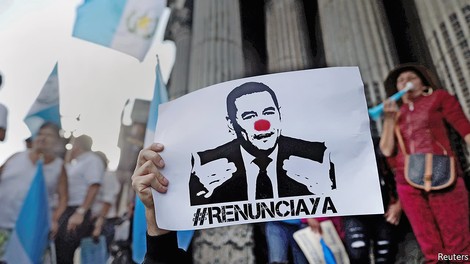Your podcast discovery platform
Curious minds select the most fascinating podcasts from around the world. Discover hand-piqd audio recommendations on your favorite topics.

piqer for: Globalization and politics Global finds
Luis BARRUETO is a journalist from Guatemala. Studied business and finance journalism at Aarhus University in Denmark and City University London.
Guatemala's Corrupt Elites and the President Make War on Graft-Busters
Guatemala's President Jimmy Morales tried to oust the head of a UN-backed anti-corruption body after it announced plans to investigate whether his campaign was financed illegally. The Economist explains here and here.
With help from the International Commission Against Impunity in Guatemala (CICIG), created by accord between the Guatemalan state and the United Nations and funded by international donors, local prosecutors have made inroads to uncover high-level corruption schemes coopting the political system.
An investigation made public on Aug. 24 claimed Morales' party failed to disclose $900,000 in electoral contributions. Prosecutors thus requested to remove the president's immunity to further advance with the investigation, but the President sought to sack the head of CICIG, Colombian Ivan Velasquez, in retaliation. His move created enough popular backlash and was so poorly crafted that the Constitutional Court ruled against him, but the bigger picture is even more worrying.
CICIG in context: Graft won't go without a fight
Velasquez' leadership at the helm of CICIG has been crucial in delivering blows to the nation's corrupt political system. CICIG contributed to the removal of former President Otto Perez and former Vice President Roxana Baldetti from office in 2015 and since then, they've continued to uncover graft schemes in the public health system, the development of infrastructure projects, and municipal funds mismanagement.
Because of this, Guatemala is now considered one of two countries making progress in the fight against graft and impunity – Brasil is the other –, but corrupt elites have now regrouped and aligned themselves with a President interested in halting further progress. Ultra-conservatives, the association of mayors, and congressmen side with Morales. And while the international community and civil society support Velásquez and CICIG's continuation, the business sector has remained passive. Is it being complicit?
Stay up to date – with a newsletter from your channel on Global finds.
